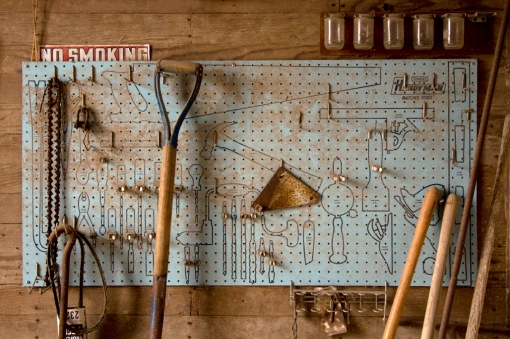Logbook
On the workbench in the basement, Zeke sets the two green card files to his left and the new 1955 Chevy parts catalog, bound in a series of three-ring notebooks, to his right. He sits on a backless stool and locks his feet inside the bottom rung.
He sharpens a pencil with his penknife, then draws out an index card. On each card he copies the description and the part number on the top line, writing in all caps. Below, on the left of the card, he writes INVENTORY. At 10 p.m., he stops. He will do this after dinner for the next several weeks, marking his daily progress with a shim he uses as a bookmark.
Every evening when he gets upstairs and readies for bed, Zeke finds his wife, Vera, already asleep.











